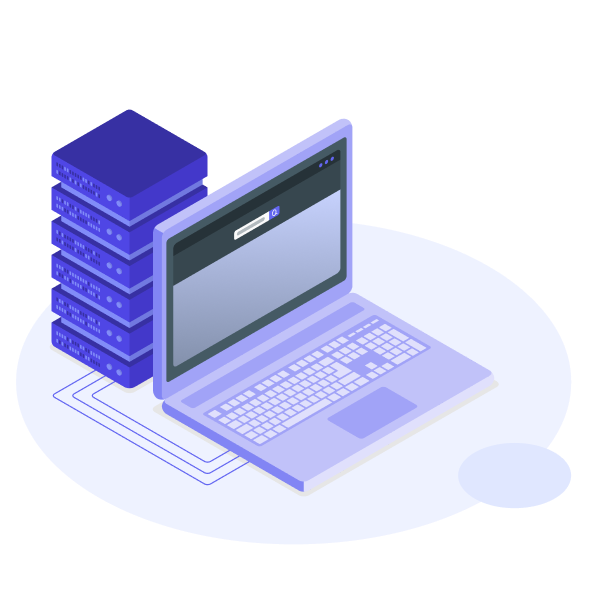As your business grows, there inevitably comes a time when setting up your own server becomes the smartest move. Whether it’s due to increasing website traffic, the need to run business-critical applications, or simply seeking greater uptime and reliability, investing in a dedicated server is a significant milestone.
But the pressing question remains: how much does a server cost for a small business today?
Let’s dive deep into server pricing and explore the options available in 2025, helping you make the best decision for your company.
Why Set Up Your Own Server?
There are many compelling reasons small businesses consider setting up their own servers, including:
- Growing traffic to e-commerce websites
- Running multiple business applications simultaneously
- Requiring enhanced uptime, performance, and security
- Storing large volumes of sensitive business data
Owning or renting a server can act as the nerve center of your operations, ensuring everything runs efficiently and reliably. Choosing the right server solution is, therefore, essential to your success.
Renting vs. Owning a Server: What's Best for Your Business?
When it comes to servers, small businesses typically have three options:
- Renting a server for a fixed monthly fee.
- Purchasing a server and hosting it in-house.
- Purchasing a server and colocating it in a professional data center.
Each path has different implications for server cost, performance, security, and maintenance.
Renting a Server
Renting a server comes with several significant advantages. It provides fixed monthly server pricing that covers hardware, power, cooling, and 24/7 support, making budgeting straightforward. Businesses gain access to the latest technology with the flexibility to upgrade easily as hardware improves. Additionally, onsite expert support is available to address any hardware issues or server management needs, while hardware replacement costs are fully covered. Renting also ensures enterprise-grade redundancy in both power and network infrastructure, something that would be costly to replicate in a typical office setting.
However, renting also has a few disadvantages. Businesses do not have direct physical access to the server hardware, meaning data must be downloaded beforehand if access is needed. Moreover, while renting is cost-effective in the short and medium term, it may become more expensive over extended periods compared to purchasing a server outright. Nevertheless, renting remains an attractive option for companies seeking predictability, flexibility, and minimal upfront investment in their server infrastructure.
Purchasing a Server
Owning a server offers several notable advantages. It requires only a one-time upfront payment, providing long-term cost stability. Business owners maintain full physical control over their server hardware and data, ensuring greater privacy and immediate access when needed. Additionally, the equipment can be utilized until it becomes obsolete, allowing businesses to maximize the value of their investment without the need for frequent upgrades.
On the other hand, owning a server also comes with certain disadvantages. Businesses must account for ongoing operational costs such as power, cooling, and internet services. Unlike professional data centers, in-house setups often lack redundancy in power and network infrastructure, increasing the risk of downtime. Owners are fully responsible for maintenance and hardware replacement, and disaster recovery protections must be separately arranged. Despite these challenges, owning a server can be a cost-effective solution for businesses that do not require frequent hardware updates and prefer full control over their IT infrastructure.
Colocating a Server
Colocating a server provides several important advantages for businesses. It ensures a secure, 24/7 monitored environment with redundant power sources and precise climate control, offering maximum reliability. Fire suppression systems are in place to protect your valuable equipment, reducing the risk of catastrophic loss. Additionally, colocation facilities typically offer remote hands support, allowing technical issues to be addressed quickly without requiring your physical presence.
However, colocation also involves some drawbacks. Businesses must make an upfront hardware purchase, which can be a significant initial investment. Furthermore, owners remain responsible for any hardware replacements in the event of failures. Despite these challenges, colocation strikes a smart balance between full ownership and the enhanced security and reliability of professional hosting environments, making it an attractive option for businesses seeking greater control without sacrificing protection.
Real-World Server Pricing Scenarios Based on Business Needs
Choosing the right server depends heavily on your specific business requirements. Let’s explore several practical examples of server pricing across different levels of server needs, from minimal to moderate requirements.
Minimal Server Needs
Businesses with minimal server needs — such as running a small website, managing email hosting, or simple file storage — can opt for budget-friendly solutions.
Renting a Cloud Server is an excellent starting point. This option typically includes 4 CPU cores, 8GB RAM, 160GB of storage, and 5TB of bandwidth. The upfront cost is $0, and the server cost per month is just $40. It offers a great entry-level solution with enough resources for small operations.
Renting a Dedicated Server provides a more robust setup featuring an Intel E3 1240V3 processor, 32GB RAM, and a 500GB SSD. There is no upfront payment, and the monthly cost is $70. This choice is ideal for businesses anticipating slight growth or needing more reliability.
Owning a Server remains an option for businesses that prefer complete control. A typical configuration would include an E3-1240 v5 processor (3.50 GHz), 32GB RAM, and a 500GB SSD. The upfront investment amounts to around $1718, with estimated monthly expenses of approximately $30.24 to cover power, cooling, and internet costs.
Colocation is another route for businesses wanting full hardware ownership but enhanced security and reliability. The hardware specifications mirror the owned server setup. The upfront cost is $1718, and the monthly fee for colocation services is $79.
Moderate Server Requirements
Businesses with moderate demands — such as managing a medium-traffic e-commerce platform, hosting SaaS applications, or running databases — require more powerful server solutions.
Renting a Server for these needs often involves higher performance specs, such as an Intel Xeon W-2125 processor, 32GB RAM, and dual 500GB SSDs. The monthly cost for this setup is $140, offering a balance between power and flexibility without any upfront expense.
Owning a Server suitable for moderate requirements would involve an upfront hardware cost of approximately $1970 plus taxes. Monthly operational costs, including power and cooling, are estimated at around $30.24. This route suits businesses looking for a longer-term investment and willing to manage hardware on their own.
Colocation for a moderately powerful server mirrors the ownership setup, requiring the same upfront investment of $1970 plus taxes. The monthly colocation cost remains steady at $79, offering a reliable hosting environment with added security and redundancy.
Extensive Server Requirements
For businesses operating at a larger scale — such as managing high-traffic websites, delivering extensive SaaS platforms, or running intensive database operations — more robust server solutions are necessary.
Renting a Server for these needs typically involves powerful configurations like Dual Intel Xeon Silver 4114 processors, 64GB of RAM, and two 500GB SSDs. The monthly cost for renting such a server is around $295, offering enterprise-level performance without the need for a substantial upfront investment.
Owning a Server with similar specifications requires a significant upfront cost of approximately $3893 plus taxes. In addition to the purchase cost, businesses must also budget for monthly operational expenses, with power consumption alone estimated at around $60.24, not including additional cooling and internet charges.
Colocation remains a viable alternative for businesses that prefer owning their hardware but want the advantages of a professional data center environment. The upfront cost mirrors that of ownership, around $3893 plus taxes, while the ongoing monthly fee for colocation services is $79.
While the server cost for advanced setups is considerably higher, the benefits — including greater performance, scalability, and reliability — make it a valuable investment for growing enterprises needing a powerful IT backbone.
Understanding Server Cost for Your Specific Needs
So, how much does a server cost for a small business? Cloud servers start as low as $5/month, though most companies should budget around $40/month for reliable resources. Dedicated server rentals typically range between $100 and $200/month depending on specifications. Buying a server will cost between $1000 and $3000 for small business setups, plus ongoing power and maintenance costs.
When evaluating server pricing, remember the total cost of ownership extends beyond the initial purchase or rental fee. Factors such as energy consumption, redundancy, security, and IT support services play a vital role in determining real-world expenses.
The server cost structure you choose should align with your company's size, technical capabilities, and growth expectations.
Additional Server Price Factors to Consider
- Initial Setup Costs
When setting up your server, you may incur additional setup costs. Hiring a professional IT expert to handle configuration, security setup, and backups typically costs between $100 and $150 depending on the complexity of the tasks.
Projects like disaster recovery plans, email host setup, and complex networking infrastructure can significantly raise initial costs. It’s wise to plan a realistic setup budget alongside your hardware expenses.
- Ongoing Maintenance Costs
Server maintenance is critical for ensuring uptime and security. Without regular updates, patches, and monitoring, servers become vulnerable to hardware failures and cyberattacks.
For owned servers, you’ll need IT specialists available for:
- Hardware troubleshooting
- Software updates
- Backup management
- Security hardening
If you opt for renting or colocating, providers often include 24/7 support, greatly minimizing unexpected maintenance costs.
Conclusion: What’s the Best Server Pricing Option in 2025?
Understanding how much does a server cost depends heavily on your business’s current needs and growth plans.Renting offers predictability and scalability with lower up-front costs. Purchasing gives full ownership but higher initial and maintenance costs. Colocation provides the best of both worlds: ownership plus data center-grade protections.
Overall, prices for servers have become more accessible than ever in 2025, with server pricing tailored to businesses of every size and budget. Whether you need an entry-level setup for basic operations or a powerful server cluster for intensive apps, there’s a solution that fits.
Always evaluate your company's technical capacity, risk tolerance, and financial goals when selecting the right server cost model!

















